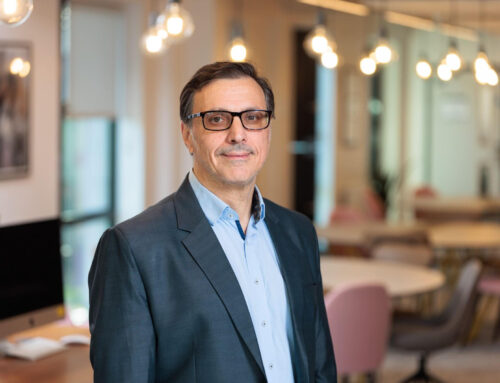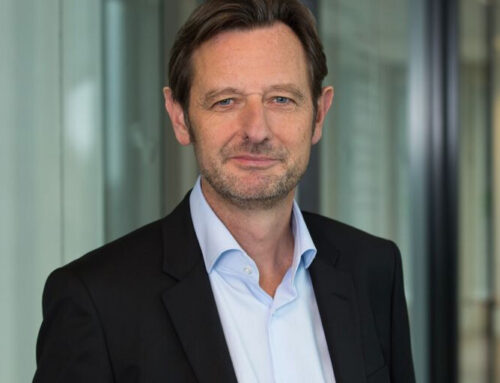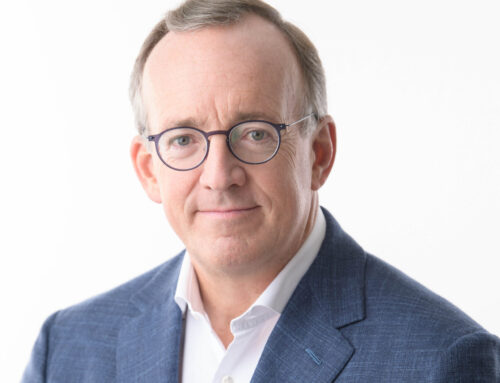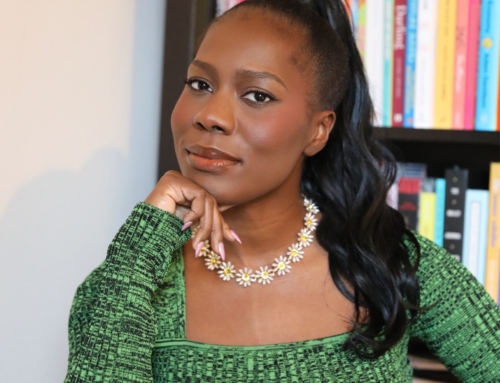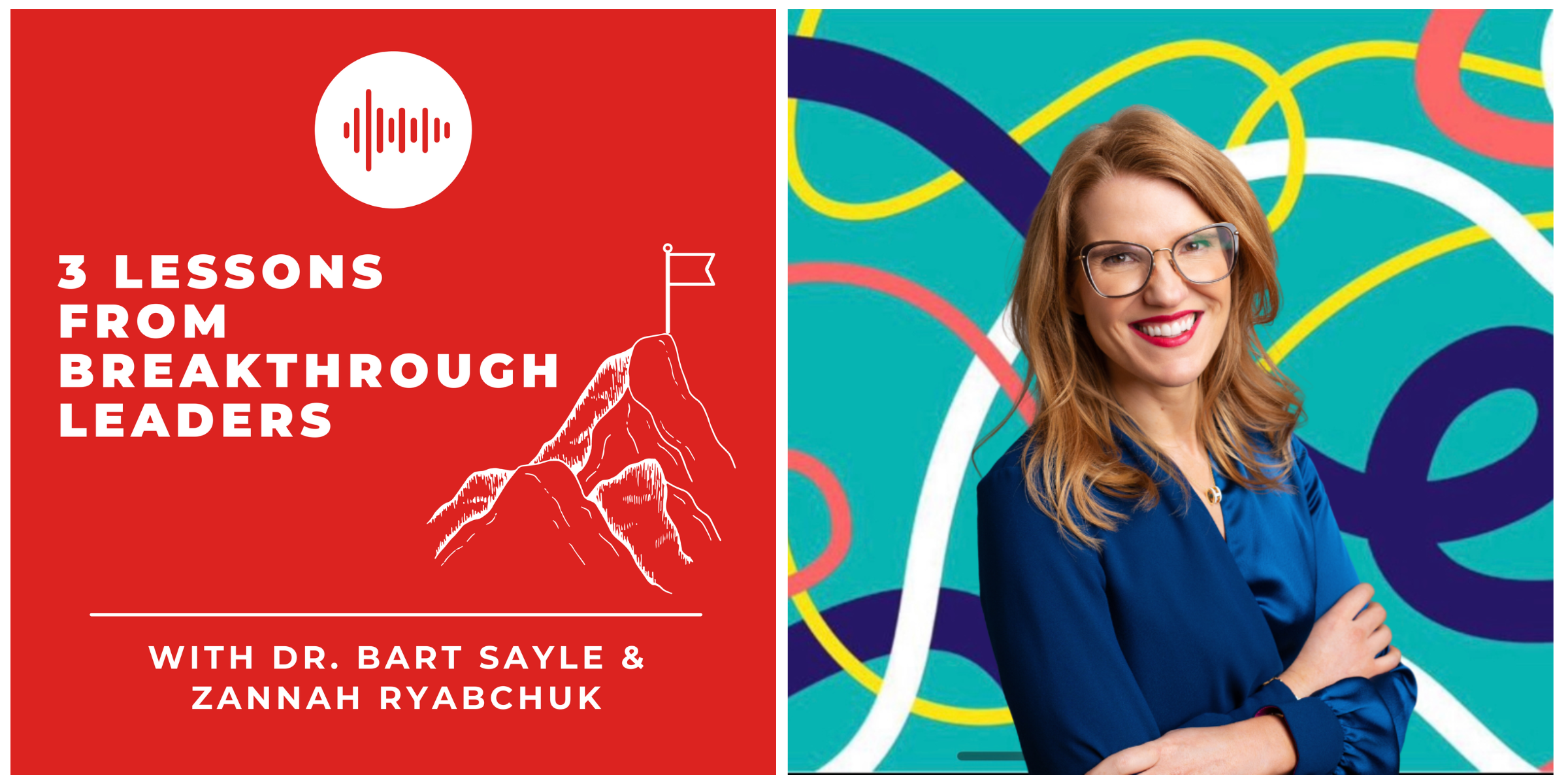 Listen to our new podcast episode where we explore what it means to have a Squiggly Career with Helen Tupper!
Listen to our new podcast episode where we explore what it means to have a Squiggly Career with Helen Tupper!
Helen is the co-founder and CEO of Amazing If, a company with an ambition to make careers better for everyone. Together with her business partner Sarah Ellis, she is the author of two Sunday Times bestsellers The Squiggly Career and You Coach You. Their Squiggly Careers podcast is the UKs #1 careers podcast.
Helen also works as a Trustee for Working Families, a UK charity with a mission to support families and carers with their work and life commitments. She’s held leadership roles for Microsoft, Virgin and BP.
To learn more about Helen click here. To listen to the Squiggly Career Podcast click here.
Listen to the S2 E3 ‘Unleashing Potential’ with Helen Tupper
You will learn these 3 lessons from Helen:
- Embracing Squiggly Careers
- How great leadership unleashes potential
- Why your response to failure matters
This podcast episode was recorded in 2023.
If you enjoyed this episode, make sure you subscribe to this podcast and please do leave us a review and rating on your player of choice. We will be updating you on upcoming series on our social media so remember to follow us.
Transcript of the episode
Zannah Ryabchuk
Hello and welcome to the second series of 3 Lessons from Breakthrough Leaders with me Zannah Ryabchuk, CEO of Breakthrough Global.
Bart Sayle
And with me, Bart Sayle, founder of Breakthrough Global, where we’ve spent the past 30 years developing the breakthrough methodology to help transform companies and people looking to reach their highest level.
Zannah Ryabchuk
And this podcast is all about giving you insider tips, and the know how from the world’s foremost leaders and creative talents. Distilling their knowledge and experience into three lessons, which we guarantee will help you and your companies to unleash your potential. And you can get in touch with us at bartsayle@breakthroughglobal.com to find out more. In today’s episode, we’ll hear from Helen Tupper. Helen is the co-founder and CEO of Amazing If. A company with an ambition to make careers better for everyone. Together with her business partner Sarah Ellis, she’s the author of two Sunday Times best sellers: The Squiggly Career and You Coach You. The Squiggly Careers podcast is the UK’s number one careers podcast. Helen also works as a trustee for Working Families, a UK charity with a mission to support families and carers with their work and life commitments. And she’s held leadership roles for Microsoft, Virgin and BP. And I met Helen at an event a few years ago. And she’s just a very inspirational, down to earth, easy to talk to, friendly and plainly delightful person. So I thought it would be fantastic to get her on the show. And today, we’ll learn these three lessons from her.
Zannah Ryabchuk
Embracing Squiggly Careers.
Helen Tupper
The thing that has really helped us to grow has been giving people this freedom and permission to talk about their career differently. And then, you know, enabling them to do the things that they want to do and not be restricted by this ladder-like notion that’s been around for such a long time.
Zannah Ryabchuk
How great leadership unleashes potential.
Helen Tupper
I always think about management, I think it is a responsibility and not just a role.
Zannah Ryabchuk
Why your response to failure matters.
Helen Tupper
I mean, inside I was thinking, ‘Oh, that’s awful.’ But what I did outside was I communicated with all the stakeholders. I stayed calm, all that kind of stuff. And so suddenly, you’re demonstrating a lot of very different strengths under pressure to lots more people.
Bart Sayle
Lesson One: Squiggly Careers.
Helen Tupper
So a Squiggly Career is the opposite really, of the ladder-like notion of development. It’s been around for over 100 years, which says that, you know, we can completely plan for our career because we’re operating in a predictable world of work. And the path that you set out on is the one that you’re going to become progressively more senior in until you reach the destination that everybody wants from work, which is to get to the top. That just isn’t true of what people want from work or what work looks like anymore, though, as I’m sure we’ll talk about the legacy of that ladder is pretty strong in lots of organisations. So what Squiggly means is that we are working in a world that is full of chang, and it’s unpredictable and it’s ambiguous. But what that does create is more options and opportunities for people’s careers. So in a Squiggly Career, you can develop in different directions, you, you don’t have to be defined by the last job that you did. Success isn’t one size fits all. And your career can be as individual as you are. And I think when Sarah, my business partner, and I first started thinking about Squiggly Careers, over 10 years ago, we didn’t really know how much it was going to stick. And so that has really been the thing that has really helped us to grow, has been giving people this freedom and permission to talk about their career differently. And then, you know, enabling them to do the things that they want to do and not be restricted by this ladder-like notion that’s been around for such a long time.
Zannah Ryabchuk
And I think the fascinating thing for me about it is that I’m completely out there, I’m left field, I’m the only person left of my generation who hasn’t had a Squiggly Career. So I just find it a fascinating, fascinating concept.
Bart Sayle
You’re under estimating yourself, Zannah, because,
Zannah Ryabchuk
Yes, it’s true. Breakthrough’s a Squiggle in itself.
Bart Sayle
It’s Squiggly anyway. But the other thing is, for me, it’s about growth. There’s so much more opportunity now for Squiggly. Because I think people do get stuck, don’t they? They they get stuck in their careers. They get stuck for all sorts of reasons, and they’re no longer growing. So for me, that’s the key thing that I would look at. ‘Am I still growing?’ If not, let’s go let’s move.
Helen Tupper
And I think one of the things that I absolutely love doing is understanding those reasons because to your point, Bart, they’re so different. Some people it’s about confidence. So some people get themselves stuck because they don’t have the self belief yet to get themselves unstuck. And then some people, it’s because they can’t sort of see what they can be because they haven’t looked at the possibilities beyond the role that they’re in today, you’re like, Okay, I know how can help you there. And for some people, it’s that they’ve never really created a community around their career. And I, honestly one of the things that I love is when I talk to people, it’s groups or individuals. And I just try and understand like, what’s getting you stuck, because we can get you unstuck and if you are unstuck Squiggly, you know, Squiggly is there for you.
Zannah Ryabchuk
And I think that a big part of that now is what you talk about in terms of kind of self coaching, so that we all need to really take control of this for ourselves. And that’s a huge mantra of breakthroughs to start with yourself. So there’s kind of two elements to that, that I think are critical, and maybe they’re hand in glove. And that is skills. This idea that now skills are so important, it’s not about where you went to university. It’s not about maybe even necessarily what experience you’ve had before. But what are the skills that you’ve got? And are you curious and have that growth mindset to continue to learn and take on new skills and build into that? And also what you value? So how do those two things kind of marry together and work in your world?
Helen Tupper
Yeah, so when I’m talking to organisations and working with individuals on Squiggly careers, I have this sort of Squiggly Career readiness scale in mind. And there’s questions that I can ask that helped me to see where people and companies sit on this scale, and it starts in very similar places to what you’re talking about Zannah. So we start with mindset. Does this individual does this organisation have a learning mindset? Are they open? Are they curious fear and ego getting in their way? Or are they kind of willing to get it going, you know, give it a go. So you’ve got to have that because you can’t build. You can’t build without that, really? Then we can get into the skill set. I’m always trying to see like, where are we on that skill set point? Which skills have we got, which have we not? Which ones do we need to work on? And then we start to tip more into the company things now. I think one of our biggest learnings at Amazing If was that we can’t just help individuals, if I just write books for people, if I just do podcasts for people, the problem that happens is they come back to me in six months time and go, ‘It was really helpful but.’ And the but tends to be ‘I had a conversation with my manager and they didn’t know what to do with this Squiggly Career thing that I talked to them about, about career possibilities. They just wanted me to fill in a form. And so we then sort of realised that on this readiness scale, you’ve got mindset skill set, but then you’ve got to get capability. So you got to help managers operate as coaches, for example, you’ve got to get frequent and fearless feedback happening in organisations. It’s a really important capability you’ve got to build in a business and then you get on to culture. That last bit, which is what makes Squiggly stick is the language of the organisation. It’s how leaders show up when they talk about their careers. And so I’m always trying to work through this scale, so that I start at the right place for either the person or the company. And I don’t assume that everyone needs the same thing. People start in different places but everybody can succeed in Squiggly Career, we just, we just got to meet them where they are.
Bart Sayle
What inspired me about this, is that I had a Squiggly Career and didn’t know about it. And it served me well. The main thing for me was that I was exercising choice, I had choice. And I didn’t feel that I was the effect of something else or some somebody else’s expectations. And I think that empowered me throughout. And not every decision was a great decision. Sometimes I, I felt I was declining. But again, I then had the choice to do something about it. And I think that that, together, with the empowerment that I felt has brought me to where I am now. And I have no regrets about anything I did.
Zannah Ryabchuk
So ask yourself these questions. Right now, in your role, where you are in your life. Do you feel fulfilled? Are you happy in your role? Are you growing in your role? Are you working in the stretch zone? If the answer to any of those is no, perhaps it’s time to start thinking about where you can go to next. Maybe you should give Helen a call.
Bart Sayle
Lesson Two: unleash the potential.
Zannah Ryabchuk
What’s been the story for you? And probably the second part that is what leaders have really influenced you along that journey?
Helen Tupper
So it did, it did start quite ladder-like I think. One of, one of my values is achievement. I didn’t know that at the time. But I think when you are sort of at the earliest stages of your career, graduate schemes are like ready made achievement, right? So you got to go through a tough application process. And then you get all these different placements where you’re trying to be the best and I loved it. I loved it so much. I did three graduate schemes in ever increasing more seniority. And I think they gave me a rapid exposure to what it was like to work in large organisations. And I realised that I love the corporate environment. I love the smart people. I love the pace, but I like really just loved working in these big businesses. But I think then what I started to realise was that it wasn’t always the upwards moves that were the most interesting ones. I loved working in these big businesses, but getting into the small, like, the innovation teams that existed in them. And I just started to move around my career finding those places. So I did like an innovation role in Capital One, for example. I did an innovation role in E.ON. I did a sort of an insight role in BP. And I grew a lot by doing that. It’s hard, though, it’s hard. That’s the other thing that I realised is these innovation teams in organisations, they’re often the epicentre of change. And you know, that also took me to places like Virgin where I think that was such a, like a breakthrough moment for me. That was where I started Amazing If as a side project, because I suddenly felt this energy and this permission that I didn’t just have to be this sort of change maker in work, I could do it outside of work as well. And I think honestly, it was also where I had my first child, it was also where I started my MBA, there was just something for me in like the alchemy of that organisation.
Zannah Ryabchuk
I love that. It’s about unleashing your potential and creating the space, the permission, the encouragement, the motivation, just all have the right kind of circumstances and environment to just completely unleash your potential. And it must just have been amazing. Because if that was happening for you, it would have been happening for everybody else at the same time. I just think what an incredible environment to be in.
Helen Tupper
It creates so many ripples, doesn’t it? I think it creates ripples in the moment, because suddenly you go ‘Well, I’m a manager. This is what I should be doing for my teams.’ And I’ve had lots of, lots of brilliant leaders who have helped me along the way. Funnily enough, I’ve reconnected in person with two of them this week. So for example, my manager at Virgin, when all those things are happening, there’s a guy called James Tipple, and I’ve met him this week. He came over to my house this week, and we kind of caught up. And it was really lovely. He managed me back in 2013. And it’s so nice to be reconnected and stay connected with him. And then my manager before James was someone called Phil Gilbert, who I met up with London this week, and we haven’t seen it to the back 10 years. And he managed me back in 2010 when I was at E.ON and that innovation team. And I value their leadership and the impact that they had on my career so much, you know. Phil gave me, he spotted strengths that I didn’t know I had. And he put me in positions of stretch that I wasn’t aware that I could do. He gave me that sort of permission to really, really progress. I call him my manure Manager. Which some people were like, ‘Oh, was that because he was a bit?’ And I was like, ‘No, no, no, no,’ because he put me in the manure. You know like, I was this sort of small little plant and he gave me loads of manure. You know, this job I couldn’t do, a budget I’ve never managed. He surrounded me with like, he gave me a coach. I didn’t even know a coach was. No idea. I didn’t even want to talk to them about. He put me on these programmes for advanced management and I just flourished under his leadership. And I’m very grateful for it. And I think James did something very similar. You know, we like pitched a new business to Richard Branson, and then we built it and launched it. And I don’t think I could have done that without the space and support that both of those managers gave me. But then those ripples have gone really far. Because that has now, you know, I’m years on from now working from Phil, but he very much influences how I manage people. Now, I always think about management. I think it is a responsibility and not not just a role. I think so many people think ‘Oh, I’ve got the job title of the manager now. Great.’ Yeah, you’ve also got a responsibility for other people’s happiness. Not just this week, like how they feel about work this year, and how they’re going to reflect on this moment years in advance. I just think it’s a real responsibility. The only thing we do more than work in our life is sleep. So I think if you’re happy at work, you’re more likely to be happy in your life. And managers do play a big part in that.
Zannah Ryabchuk
Helen talks there about different facets of leadership. She talks about managing coaching that amazing coach that helped her to flourish. But she’s also talking about leadership. And these are three facets of leadership that can often become collapsed and conflated. At Breakthrough, we’ve got a fantastic distinction that helps to separate them out.
Bart Sayle
In leading we lead people. In managing we manage stuff. We manage timescales and deadlines and resources. And in coaching, we coach performance. And these three aspects need to be separated so that you don’t end up managing when you should be leading. Leading when you should be coaching.
Bart Sayle
And now onto Lesson Three: welcome failure.
Zannah Ryabchuk
What’s failure to you, Helen? And how do you kind of talk to people about failure?
Helen Tupper
I think failure is being willing to do something you’ve not done before, and find the learning in it. Because I think when, and when I’ve got a few different things that I can talk about here. Different failures I’ve had and different failures that I’ve been encouraged to make. So I remember when I used to work for Capital One, I had what I would always think of as I don’t think is my biggest failure, but it’s one of the ones that I think it really felt hard at the time, which was without going into the details, a failed product migration. Which sounds very corporate. I mean it was quite corporate. There were some challenges that this created, and I was going to leading part of the team, and therefore took a lot of responsibility from myself for this failure having happened. And I felt really bad about it. And I was like, ‘Oh, my career is doomed.’ ‘I was like, oh this is awful.’ And then what I realised really quickly was that it was how I responded to the failure, that actually made a big difference. And actually, I think my career was better because of it in that business. But what I did outside was, you know, brought people together, I tried to quickly respond to it, I brought lots of people’s perspectives so we could solve the problem quickly. I communicated with all the stakeholders. I stayed calm, all that kind of stuff. And so suddenly, you’re demonstrating a lot of very different strengths under pressure to lots more people. And actually, I really learnt not to fear failure, because I think in that moment, my career was better because of it. Now, I’m not saying you want to invite it, I didn’t, I wouldn’t want to to cause that problem in order to create that. But I don’t fear failure anymore as a result of that learning. And I also again, working for Phil at E.ON, part of my job at E.ON was to launch six to eight new products and services a year in the energy efficiency space. And he said to me, ‘Helen, if some of those don’t fail, you’re not working hard enough.’ And what he didn’t mean was like the hours. He didn’t mean that hours. He meant that you’re not, you’re not pushing the boundaries enough. If everything is successful, we’re playing it a bit too safe. And so I learned that about failure as well. That sometimes failure just means that you’re pushing yourself into the edges where other people haven’t been before. And so now I’ve got, okay, so failure can actually help me to demonstrate skills to other people. Failure helps me to push the boundaries and do things that other people haven’t done before. And then in our company at Amazing If, one of the things we’ve realised is that one of the reasons people fear failure is because they sort of worry about what other people think. So we we’ve really looked at the language of failure. We call it mistake moments in our company and we encourage everybody to share mistake moments clear, and it does two things. A, it gets it out. It just gets it out so people don’t bottle it up and build it up and it becomes much more of a personal issue for them. And second, it gets a lot of support from other people like ‘Oh, don’t don’t worry, gosh, I did that, too. I’m so glad you said that. Why don’t we do this together next time.’ And so I’ve also learned that failure can be a really important way that teams get stronger.
Zannah Ryabchuk
It’s so true. It’s all about that psychological safety building and problem solving. Ours is a bit ruder Helen, we call it ‘I [censored] up.’ And that started from when I first joined, we actually had an analogue [censored] up folder where like you felt something out, you’d write a note about it and put it in the folder. And now we just do it on Slack. So either either verbally in a meeting like ‘Guys, I’ve got something that I’ve completely failed at,’ or if somebody has made a mistake, and it involves other people, you just have to, you know, a polite way is to hold your hands up moment. And we encourage it massively, massively, massively. So that whether it’s something little or big, people aren’t ever afraid to say, oh, hold my hands up. I’ve completely messed that up. I’m so sorry. Here’s how I’m gonna fix it. Here’s what I’ve learned. And that’s an opportunity for growth and for the people to get behind it. But you’ll you’ll have seen that I’m sure.
Bart Sayle
Absolutely. And I think, well, I’m a master of that, that failing. But I don’t fail. And that’s one of the things that that I learned. That things fail. Like I said earlier, I’ve had businesses that fail, but I’m not a failure. It’s that that failed. And for me to be a failure, there’s just two things. That I fail to do something that I really want to do or I give something up before I’ve given it my all. So they then are personal failures. If I look back and think, ‘Wow, what an opportunity. I didn’t take it. I got stuck. I was on a plateau or whatever it was. ‘I wish I’d have done that.’ That to me would be, you know, my own failure. And I think what you said is another distinction that it’s the way you respond to failure that really decides whether this has been a growth opportunity or not.
Helen Tupper
Yeah, I totally agree. I think the language of how you talk about it. I think the other thing that I see as well with with failure is when the thing that I, I tried to spot when I see it when I’m sort of coaching other people is when people fail, and then they make it their identity, that they’re a failure. Like, you know, they see the season and I’m like, oh, no, we all fail. We all kind of have things that don’t go the way we want it to or didn’t work out. Like there’s all there’s all these things that happen all the time. But that doesn’t mean you’re a failure. It just means you probably did something didn’t do before. And there’s something you can learn from it. But I think a lot of people, when I see in the context of Squiggly Careers, is people won’t try something different. They won’t move to a different function or try a different role because they worried that they might fail doing it. And it’s sort of like, well, maybe it’s maybe it’s not gonna be the right thing for you, but you don’t know. And you’re not going to grow until you give it a go. But if it doesn’t work, you are not a failure. It’s just that that wasn’t the right move for you to make. And so disconnecting people from like, one thing that hasn’t gone well means that I’m not good at my work. That kind of that identity accumulation that people make is, again, something that I tried, I tried to do with people quite a lot to give them because I think it’s just liberating. You know, when you carry that fear of failure, it’s very limiting. And when you realise that making a mistake is doesn’t mean your career development is doomed. You’re like, oh, okay, well, probably can give it a go then.
Zannah Ryabchuk
I was really excited to hear Helen talking about failure in this way, because it resonates so much with what we teach people and how we work hard every day to internalise failure in a very different way and to reframe failure in a very different way.
Bart Sayle
So the first thing to remember is the failure isn’t a failure in you and who you are. And for many, it’s easy to say, ‘Let go of the fear of failure,’ yet it’s harder to do. So my recommendation is to start small. Start with some of the smaller things that didn’t work, and get practice of letting go of any fear around it. And pushing forward. Remember that courage isn’t about not fearing things. Courage is about fearing things, and moving beyond that fear.
Zannah Ryabchuk
So Helen, this is the part in the podcast where we will ask you your hotseat questions. Are you ready?
Helen Tupper
I think so.
Zannah Ryabchuk
Everybody says that, as if it was really actually going to be hot and we might scold you if you don’t get it right. There’s no right or wrong answers. All right, what’s the most exciting thing you’ve ever done?
Helen Tupper
Oh, a treasure hunt on Necker Island to launch a business for Virgin. That was a lot of fun. I can tell you more about it. But the whole thing was just very, very surreal. And, yeah, just a lot of fun.
Bart Sayle
That sounds incredible.
Zannah Ryabchuk
Did you feel like you were a little bit in a dream like you came home, you’re like, ‘I had a weird dream that I was on Necker Island and we were just launching this product.
Helen Tupper
I mean, there was this moment at the end. So we had hid this gold coin with Richard Branson’s face on it in the sand. And everyone had to go through these different like rounds in the treasure hunt on Necker Island to be able to get to this moment. And there was this moment right at the end, when everyone was like scrambling in the sand to find the gold coin with Richard to head on. And I was like, ‘What, what I work in Marketing. What’s going on?’ It was an amazing experience and kind of the, the end of, well, I mean, it was the start of the business but it was the the end of the first phase of that business of, you know, pitching it, building it, prototyping it, selling, like, the concept to lots of people and then you know, getting to that moment. So it was a really, it was a really interesting, like literally a marker in the sand. But also very fun and very surreal at the same time.
Zannah Ryabchuk
Very surreal. Amazing. What inspires you in life?
Helen Tupper
Making work better for people. Like I just I am, I am so so sure that if we can help people feel more confident and in control of their career, then work is better. And if work is better, it has such a big difference on people’s life. Like, I feel like it’s really grandiose to say, ‘Oh, I can be with people’s lives better but I do think you make work better, you give people more confidence and control of their career. In my mind. It’s all connected. And I’m just very inspired about how we can help people to do that.
Zannah Ryabchuk
What brings you energy and motivation in your everyday life,
Helen Tupper
People, connection, conversation. I love running a business with somebody else. I’m not sure I could do it without somebody so I get a lot of energy from my business partner as well. She’s so different to me. You know, she’s an introvert that likes reflecting and sport. And I’m an extrovert who likes action and shopping like we’re different on many, many levels. But the energy that I get from our interactions from, like, the challenge and the curiosity and the ideas we create an action together. Yeah, that feels quite special.
Zannah Ryabchuk
Helen, thank you so, so, so much. So if our listeners want to get in touch with you, they want to ask you a question or find out more. What’s the best way for them to do that?
Helen Tupper
Well, they are welcome to email me. They can do that. That’s Helen@amazingif.com. And if they just want a bit of Squiggly Career support, I would suggest the Squiggly Careers podcast which they can get wherever they find their podcast. That’s always, always there for people to help.
Bart Sayle
Thank you for joining us for today’s three lessons. Do make sure you hit the subscribe button. And join us each month for three more lessons from breakthrough leaders.
Zannah Ryabchuk
And have you got a question or comment or want to find out more? You can email us at bartsayle@breakthroughglobal.com or connect with us on LinkedIn at Breakthrough global or Instagram at Global Breakthrough.
Bart Sayle
We’d love to hear your own leadership stories. And we’d also love for you to share this episode on your own social media and review and rate this podcast on the player of your choice.
Zannah Ryabchuk
And so once again, thanks to our production team. Julia Soltysova over at Breakthrough Global and Robin Leeburn at Fairly Media and of course, thank you for listening.

